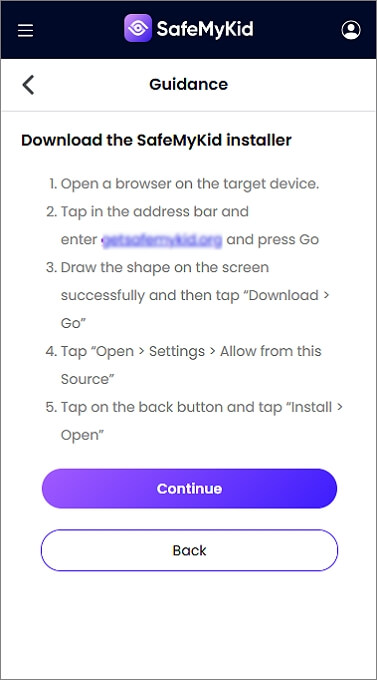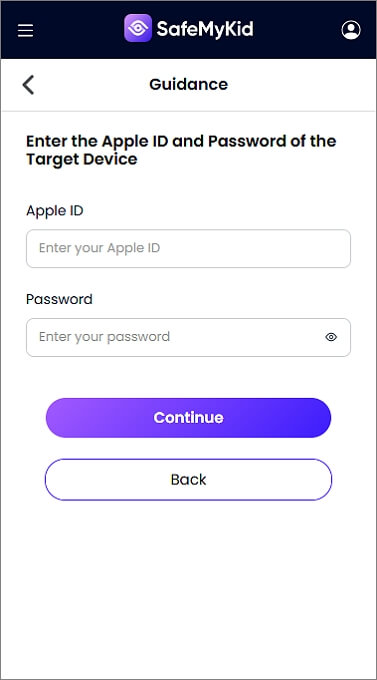10 Questions to Ask Your Unfaithful Spouse for the Truth

Infidelity is one of the most painful experiences a relationship can endure. If you’ve recently discovered your partner has been unfaithful, you’re likely feeling a whirlwind of emotions—confusion, anger, sadness, and uncertainty. While it’s natural to want immediate answers, ask the right 10 questions to ask your unfaithful spouse to understand the situation and determine how to move forward.

These 10 questions can provide valuable insight, rebuild trust, and help both partners explore whether reconciliation is possible or if separation is the better path.
1. Why Did You Cheat?

You deserve to understand the reasons behind your partner’s infidelity. Asking why they cheated allows you to uncover the underlying issues that may have contributed to their betrayal. Was it due to dissatisfaction in the relationship, unresolved personal issues, or something else entirely?
While this question may sting, the answers can offer clarity. If their response reveals they felt unfulfilled or unheard, it may highlight areas of the relationship that need attention. Conversely, if their reasons are selfish or dismissive, it might signal deeper incompatibilities.
2. Are You in Love With Someone Else?

This question cuts to the heart of the matter. If your partner has developed feelings for someone else, it’s a clear indication that your relationship needs serious evaluation. Emotional affairs often signify deeper issues than purely physical ones.
Understanding the emotional depth of the affair can help you decide how to proceed. If your partner admits they’re in love with the other person, it may be a sign that reconciliation is unlikely. If they’re not, it could mean the infidelity was more impulsive than intentional.
3. How Long Have You Been Cheating on Me?
The duration of the affair matters. Was it a one-time lapse in judgment or a prolonged deception? A long-term affair often involves repeated betrayals of trust, making it harder to rebuild the relationship.
If the infidelity was brief and they expressed genuine regret, you may feel more inclined to work through the betrayal. However, if it’s been ongoing for months or even years, you’ll need to evaluate whether you can move past such an entrenched breach of trust.
4. Did You Have Feelings for the Other Person, or Was It Just Physical?

Not all affairs are created equal. Understanding whether the infidelity was purely physical or emotionally driven can provide perspective. A physical affair may be seen as less threatening to the foundation of your relationship, as it doesn’t necessarily involve emotional intimacy.
On the other hand, emotional affairs often cut deeper because they involve sharing thoughts, feelings, and connections that should be exclusive to your relationship. Knowing the nature of the affair can guide your decisions moving forward.
5. Did You Use Protection?
As awkward as this question may be, it’s essential for your health and safety. If the infidelity involved sexual contact, you need to know whether protection was used to prevent sexually transmitted infections (STIs) or unwanted pregnancies.
A “yes” could indicate that your partner was at least mindful of your well-being, even in their betrayal. A “no,” however, introduces additional layers of risk and irresponsibility that may influence your ability to forgive.
6. Have You Cheated on Anyone Else Before?

Past behavior is a strong indicator of future actions. If your partner has a history of cheating in previous relationships, it may suggest a pattern of dishonesty and avoidance of conflict.
While “once a cheater, always a cheater” isn’t universally true, repeated instances of infidelity can signal deeper issues, such as a lack of self-control, respect for boundaries, or commitment to monogamy.
7. What’s the Reason You Couldn’t Talk to Me About Your Feelings or Concerns?
Communication is the cornerstone of any healthy relationship. This question helps you understand why your partner chose infidelity over honest dialogue. Were they afraid of conflict? Did they feel unheard or dismissed in the relationship?
The answer can reveal gaps in communication that need to be addressed if you decide to move forward together. It can also help your partner recognize the importance of vulnerability and honesty in resolving issues.
8. Are You Willing to End the Affair and Work on Our Relationship?
Rebuilding trust requires a firm commitment from both parties. If your partner isn’t willing to cut ties with the third party, reconciliation becomes nearly impossible.
This question forces your partner to confront their priorities. If they’re serious about repairing the relationship, they’ll demonstrate it through their actions—ending the affair, being transparent, and seeking professional help if needed.
9. How Can We Rebuild Trust After Your Infidelity?

Rebuilding trust is a complex process, but it starts with a plan. This question invites your partner to actively participate in the healing journey. What are they willing to do to regain your trust?
Some common steps include:
- Full transparency about their actions.
- Open communication moving forward.
- Attending couples’ therapy.
- Establishing clear boundaries and expectations.
Working together to create a roadmap for recovery can help both of you feel more in control and optimistic about the future.
10. Can You Explain How Your Actions Have Affected Me and Our Relationship?

Your partner needs to acknowledge the pain they’ve caused. This question encourages them to reflect on the impact of their choices and empathize with your perspective.
Hearing them articulate how their actions have hurt you can be a powerful step toward accountability. It also demonstrates whether they truly understand the gravity of their betrayal and are committed to making amends.
How SafeMyKid Can Help Families Rebuild Trust

Rebuilding trust after infidelity requires transparency, honesty, and consistent effort. SafeMyKid offers a range of monitoring tools designed to foster accountability and create an open environment for families navigating this sensitive time. By leveraging technology, it empowers partners and families to rebuild confidence in one another’s actions.
Key Features of SafeMyKid
SafeMyKid provides comprehensive monitoring solutions for iPhones without requiring jailbreaks. Its features include:
- Text Message Monitoring: Access all sent, received, and deleted messages on iMessage and social apps, complete with timestamps and shared media.
- GPS Location Tracking: Track the real-time location of the device and view location history, with geofencing alerts for added security.
- Social Media Activity Monitoring: Keep track of chats, notifications, and contact interactions on popular social media platforms.
- Keylogger Functionality: Record every text entered on the device, along with the app and timestamp, for a thorough understanding of the activity.
How It Works to Catch an Unfaithful Spouse
Here’s how SafeMyKid works:
Step 1. Sign Up Create an account using your email address.

Step 2. Set Up the App (Android/iOS)
- For Android: Install the app discreetly on your child’s phone and follow the simple on-screen instructions.

- For iOS: No app installation is needed—just use the owner’s iCloud credentials for setup.

Step 3. Monitor and Catch an Unfaithful Spouse via the SafeMyKid Dashboard Log in to the SafeMyKid dashboard to track the location of your unfaithful spouse, receive alerts, and monitor activity.

Encouraging Accountability and Transparency
With its detailed activity reports, SafeMyKid facilitates open discussions about behaviors and expectations. This level of transparency helps families set boundaries and re-establish trust in a collaborative way.
Privacy and Security
SafeMyKid prioritizes the confidentiality of all collected data through advanced encryption protocols, ensuring that monitored information remains secure and private.
Fresh Perspectives And Practical Actions for Navigating Infidelity
Here are actionable steps, emotional considerations, and tools that can help couples navigate the aftermath of infidelity: This table introduces fresh perspectives and practical actions that extend beyond just the questions themselves.
| Aspect | Details | Actionable Step or Tool |
|---|---|---|
| Emotional Readiness | Ensure you’re emotionally prepared for tough answers. | Take time for self-reflection or consider therapy before asking difficult questions. |
| Setting Boundaries | Establish what is acceptable behavior moving forward. | Draft a mutual agreement or work with a counselor to create boundaries. |
| Safe Environment for Discussion | Conversations should occur in a private, non-confrontational setting. | Choose a neutral location like a therapist’s office or a quiet place at home where you both feel safe. |
| Non-Verbal Communication | Watch for body language and tone during the discussion. | Stay observant and calmly address discrepancies between words and actions. |
| Building Trust Post-Infidelity | Trust rebuilding involves time, transparency, and consistent effort. | Use tools like SafeMyKid to track transparency if children are involved or if digital transparency is needed. |
| Professional Guidance | A mediator or therapist can provide a neutral ground for communication. | Seek couples therapy or relationship counseling. |
FAQs About Confronting an Unfaithful Spouse
To wrap up this comprehensive guide, here are some of the most frequently asked questions about addressing infidelity in a relationship. These answers aim to provide clarity and guidance, helping you navigate this challenging situation with confidence and care.
1. How do I prepare myself emotionally to confront my unfaithful spouse?
Confronting infidelity is emotionally taxing. Take time to process your feelings and seek support from a trusted friend or therapist. Journaling or meditating can also help you approach the conversation with a clearer mind.
2. Should I ask all the questions in one conversation?
It depends on your emotional capacity and your partner’s willingness to engage. Start with the most important questions and space them out if needed. A series of shorter conversations can often lead to more thoughtful and honest discussions.
3. What if my spouse refuses to answer my questions?
Refusal to answer may indicate guilt or an unwillingness to work on the relationship. Consider involving a neutral third party, such as a couples therapist, to facilitate open and honest communication.
4. How do I handle discovering new information that deeply hurts me?
Hearing painful truths can be overwhelming. Allow yourself to feel your emotions and take breaks if needed. Remember, it’s okay to pause the conversation and return to it later when you feel more composed.
5. Is it necessary to involve a therapist after infidelity?
While not mandatory, therapy can provide a safe space to explore the causes of infidelity, address underlying issues, and rebuild trust. It’s often a helpful step for couples who want to repair their relationship.
6. How can I ensure the conversation doesn’t turn into an argument?
Use "I" statements instead of accusations. For example, say, "I feel hurt because of your actions" rather than "You ruined our relationship." Staying calm and respectful can reduce the likelihood of escalating tensions.
Final Thoughts
Navigating infidelity is an incredibly challenging process. These 10 questions to ask your unfaithful spouse can help you gain clarity, understand the root causes of the betrayal, and decide whether reconciliation is the right choice for you.
Asking tough questions may be painful, but they’re necessary for healing and growth. Whether you choose to rebuild the relationship or move on, remember to prioritize your emotional well-being and seek support from trusted friends, family, or professionals.
If your family’s trust has been affected by infidelity, consider tools like SafeMyKid to create a safer, more transparent environment as you work through these challenges together.


